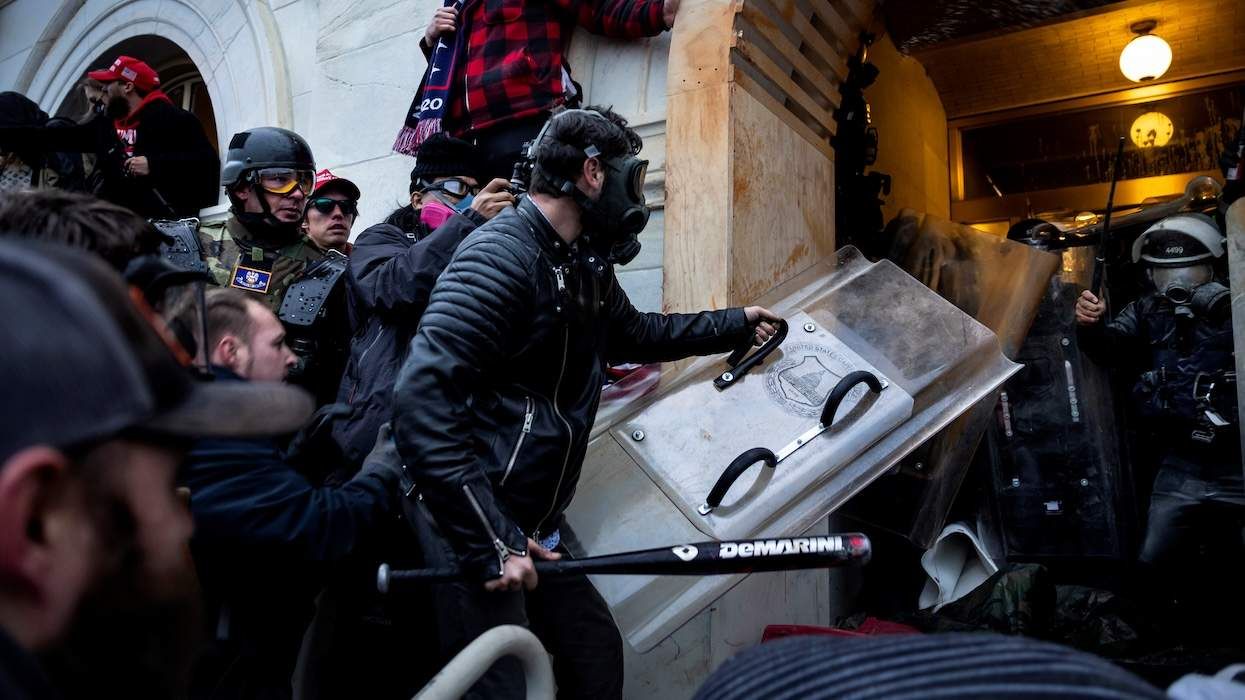Fairness and equality are fundamental values upon which the nation was founded -- if not necessarily ideals to which we have always lived up. This is true too in California, where we take pride in being forward-thinking and progressive and in leading the rest of the nation on issues of civil rights and social justice -- even as much work remains.
Fifteen years ago, then-Mayor of San Francisco Gavin Newsom took a stand for fairness and equality when he risked both his career and the good graces of countless Democratic Party leaders -- and even some in the LGBTQ movement -- by issuing marriage licenses to same-sex couples. Outside San Francisco, it wasn't a politically popular move, and according to the California Supreme Court at the time, it wasn't a legal one either. But it was the right thing to do.
Now the governor of the nation's most populous state and the world's fifth largest economy, Newsom took another principled -- if not popular -- stand last week, this time against California's unfair, unjust and unequal death penalty system. The governor's executive order included both a moratorium on executions and the permanent shuttering of the state's death chamber at San Quentin.
As Dr. Martin Luther King, Jr. said, "The time is always right to do what is right." And it is refreshing to see the governor once again take on an issue that others have ignored or punted to the next generation to address for far too long.
But why are we at the nation's largest statewide LGBTQ civil rights organization concerned with the death penalty -- an issue that, at least on its face, may not be so clearly tied to the broader movement's top priorities?
California's broken death penalty system is neither fair nor equal. It is disproportionately applied to members of society's most vulnerable communities -- including communities of color, immigrant communities and the LGBTQ community -- as a result of both societal bias and the myriad disparities in health and well-being our communities face.
No one should face death by lethal injection simply because the color of their skin, their immigration or socioeconomic status, their sexual orientation or their gender identity makes them more likely to end up in the criminal justice system and less likely to be able to afford a high-priced defense attorney.
Racial bias in our criminal justice system -- and our death penalty system in particular -- is as well-documented as it is widespread. Of the 738 inmates currently on California's death row, for example, 61 percent are Black or Hispanic. Death penalty sentences are demonstrably more likely to be given in cases with Black defendants, white victims, or both.
The bias that LGBTQ people -- and LGBTQ people of color or immigrants, in particular -- continue to face plays an ugly role in the death penalty, too. Just last year, a jury in South Dakota sentenced a gay man to death because some of the jurors reasoned that a life sentence in a men's prison was something he would enjoy as a gay man. Worse, the United States Supreme Court rejected the man's plea to hear his claim of jury bias, allowing his death sentence to unjustly stand.
Around the world and throughout history, LGBTQ people have been sentenced to death explicitly for their sexual orientation or gender identity. To this day, there are eight United Nations member states in which the death penalty is imposed as a punishment for consensual activity between people of the same sex. To sit quietly as members of our community face a similar sentence simply because the bias is less explicit would be to betray our mission as an organization and the values of our movement.
From LGBTQ equality to the fight against climate change to efforts to curb gun violence and expand access to quality healthcare, California has become a beacon of hope to the nation -- especially as those in the nation's capital have worked to take our society backward. We have modernized our juvenile justice system and our HIV criminalization laws and eliminated our cash bail system. But we cannot fully address the inequity and injustice that plagues our criminal justice system without addressing the role that the death penalty plays in devaluing the lives of people of color, immigrants and LGBTQ people.
Equality California is committed to our mission of striving to create a world that is healthy, just, fair and fully equal for all LGBTQ people. The governor's moratorium on executions is an essential step toward that goal.
RICK ZBUR is the executive director of Equality California. Follow him on Twitter @rick_zbur.















